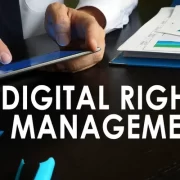What we see promising is a general public of Open and Distance Learning Organizations with a solid relationship among themselves. At times this coordinated effort includes the trading obviously materials, and a few type of cross permitting and credit move. The conveyance is turning out to be progressively electronic, and we ought to now see these educational frameworks as data innovation frameworks.
Will these advancements serve the interests of agricultural nations? There is obviously much requirement for alert. We really want to direct the improvements revealed above with worries for admittance to the education both regarding the understudies’ own earlier information and social points of view, and as far as admittance to the innovation through which to get to the education. We additionally should be worried about the effect upon the neighborhood culture that might be matte by imported materials and the fostered world’s way of life that these encapsulate.
Public Distance Learning Projects
In emerging nations there is a characteristic craving to stretch out educational arrangement to the entire populace.
Online education at the schools’ level started in the two nations during the pioneer time during the 1950s and 1960s, somewhat through deliberate associations and part of the way through government support as ‘a palliative for the pilgrim soul’. The arrangement has taken different structures – correspondence schools, radio projects to enhance typical arrangement, radio and banner missions to advance proficiency, wellbeing and different issues, as well as more formal internet based education programs. These projects have gone on in the post-frontier time, with 70,000 understudies engaged with Tanzania, and 42,000 in Zimbabwe. There has been a significant spotlight on educator preparing. Programs in the two nations have experienced deficient financing (10% and under 5% of the educational spending plan, separately, in Tanzania and Zimbabwe). Neither one of the nations has laid out their own open college. One was supported in 1989 for Tanzania, with utilization of radio and transmission, however not the full utilization of IT. In 1993 the College of Zimbabwe laid out its Web-based education Community which currently has about 1,500 understudies. We accept that this uses the ordinary correspondence approach in view of text.
Online education saves the need to construct college grounds with showing offices, and for understudies to go and to be obliged halfway. IT and systems administration further aides this, however expects admittance to the innovation – and as Zindi and Aucoin have brought up for Tanzania, even something as essential as power may not be accessible inside the local area that you are wishing to serve. Such foundation issues are not looked by evolved nations, however in some cases, as in Russia which is likewise looking for the utilization of online education to meet an educational need, there can be framework challenges: in this manner in Russia ordinary postal conveyance can be tricky while conveyance electronically through satellite to all that of current gear could be entirely achievable.
Transnational Projects
We have seen that a huge supplier of education like the OU is as of now connecting past its public boundaries, helped by IT and systems administration, to internationally give education. Geology is as of now not an obstruction.
This implies that nearby understudies could buy into courses that might be provided absolutely on the organizations, and through this would get capabilities from the providers in the created world. Apparently these capabilities would be perceived locally, and could without a doubt have some unique standing.
It is actually significant that one inspiration for Zimbabwe to lay out its own public projects was to lessen the 163 million bucks streaming out of the country from the 40,000 understudies every year selected on internet based education courses. Agricultural nations may, simply not have the option to fund transnational educational projects.








